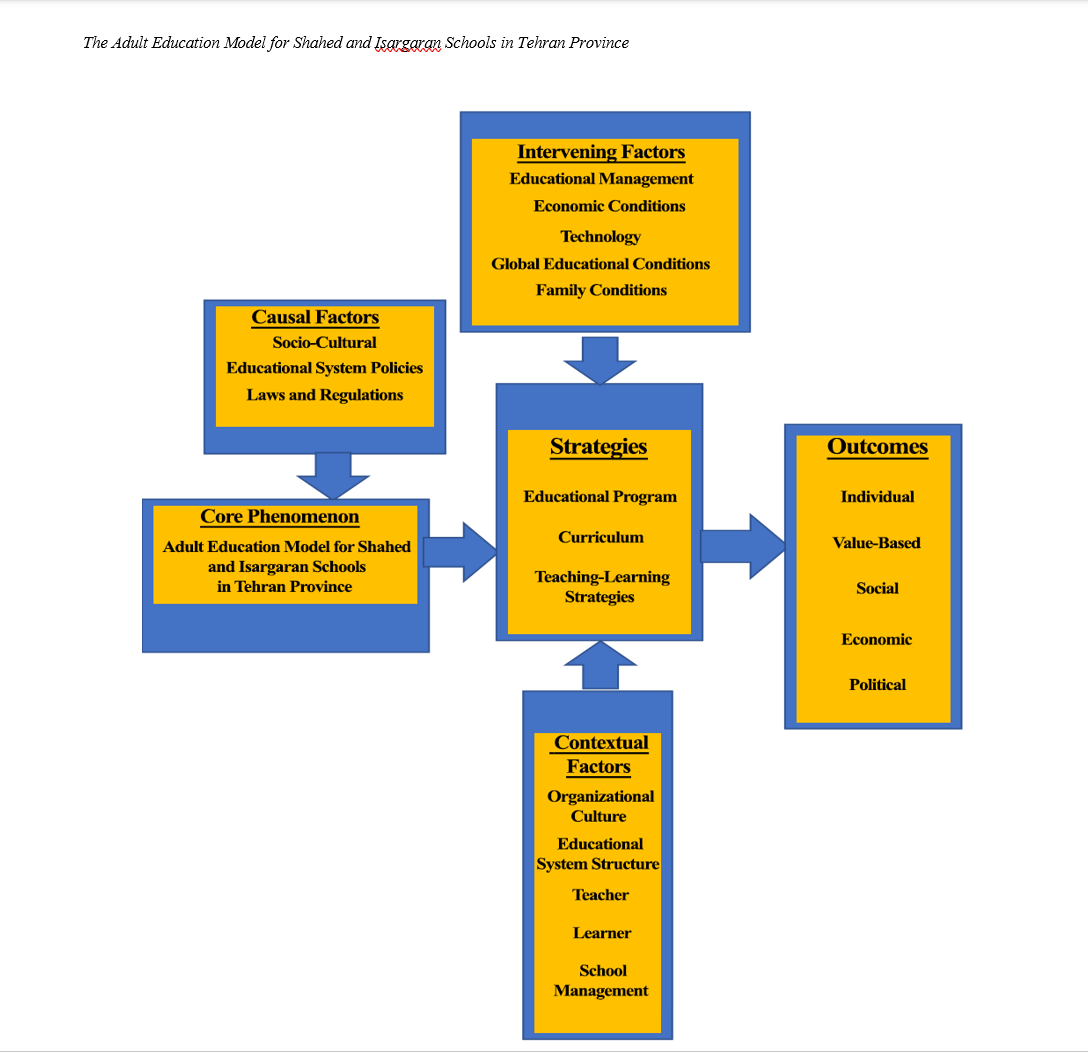Providing an Adult Education Model for Shahed and Isargaran Schools in Tehran Province (Grounded Theory)
Keywords:
adult education, causal factors, intervening factors, contextual conditions, strategies, outcomes, outputsAbstract
Objective: The present study aims to provide an adult education model for Shahed and Isargaran schools in Tehran Province.
Methodology: The research method is applied in terms of its goal, qualitative in terms of data type, and grounded theory (paradigmatic) in terms of its nature and study type. The research population includes educational experts with doctoral degrees, authorship, articles, research, and practical experience in this field. Based on purposeful theoretical sampling, 15 experts were selected for interviews. The research tool was a semi-structured interview in which the dimensions, components, and indicators of the adult education model for Shahed and Isargaran schools were organized.
Findings: Initially, deep interviews with experts were conducted for the interview form, followed by open coding to extract the indicators. Through axial coding, the indicators were categorized into components and dimensions and sent to 15 experts. Using selective coding through interviews and brainstorming, the components and indicators were identified and finalized. As a result, 5 dimensions, 21 components, and 111 indicators for the adult education model for Shahed and Isargaran schools in Tehran Province were finalized. After final approval and prioritization by experts, the dimensions, components, and constructing indicators of the model were delineated, and the model was validated again by experts.
Conclusion: This model addresses the unique needs and challenges of adult learners, emphasizing holistic development, effective use of technology, and alignment with market demands. The validated model provides a structured framework for improving adult education in these specialized schools.
Downloads

Downloads
Additional Files
Published
Submitted
Revised
Accepted
Issue
Section
License
Copyright (c) 2024 Seyyed Ahmad Mahdigholi (Author); Amirhossein Mahmoodi (Corresponding Author); Abbas Khorshidi, Mehdi Shariatmadari (Author)

This work is licensed under a Creative Commons Attribution-NonCommercial 4.0 International License.















